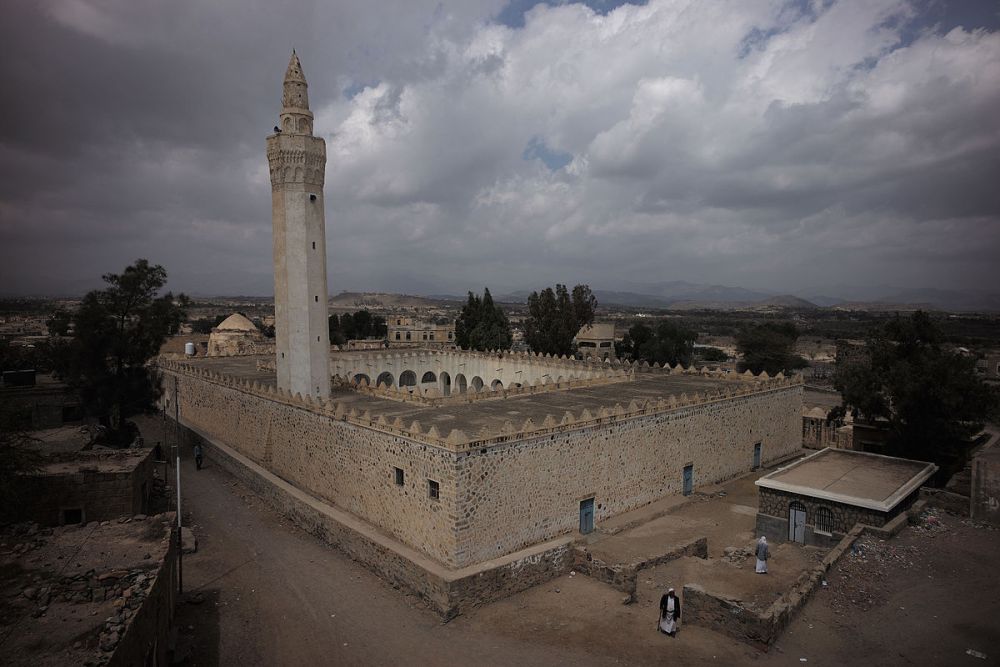

The Al-Janad Mosque in Taiz is one of Yemen's ancient architectural jewels, steeped in history and religious significance. Constructed during the era of the Islamic Caliphate, its foundations were laid in the year 632 AD, making it one of the oldest mosques in the world. The mosque is named after the village of Al-Janad, where it is located, approximately 15 kilometers from Taiz, the third largest city in Yemen.
Over the centuries, the Al-Janad Mosque has not only been a place of worship but also a center for Islamic learning. Its significance comes from its historical role; it was frequented by the renowned scholars and has been a focal point for many pilgrims and travelers.
Yemen has not traditionally been a major tourist destination like other Middle Eastern countries, partly due to its geopolitical challenges. Nevertheless, the Al-Janad Mosque historically attracted visitors interested in Islamic architecture and history. In the pre-modern period, religious tourism was significant, with scholars and people of faith journeying to engage with the mosque's heritage.
In recent decades, before the current political situation, Yemen experienced a modest surge in cultural tourism, and sites like Al-Janad Mosque gained recognition. However, the ongoing conflict in the country has led to a sharp decline in tourism activities around heritage sites.
As of the last few years, tourism in Yemen has been severely impacted by the country's political instability. Consequently, tourist numbers have dwindled and the Al-Janad Mosque, along with other historical sites, has suffered not only from a decrease in visitors but also due to lack of maintenance and potential risk from conflict-related damages.
Despite the current situation, there is hope for a revival in the future, with potential for the Al-Janad Mosque to regain its status as an important spiritual and educational landmark, attracting those interested in the profound Islamic history and culture that Yemen possesses.
The latest trends in tourism in areas less affected by instability involve sustainable and responsible travel, with an emphasis on preserving Yemen's unique and precious heritage. Any future tourism initiatives will likely focus on the recovery and preservation of the mosque as part of Yemen's overall cultural heritage.
For those interested in visiting the Al-Janad Mosque, it is recommended to monitor the travel advisories and liaise with tour organisations that specialise in Yemeni travel for the latest information. Visitors are urged to consider the ethical and safety implications of their travel and to ensure that they contribute positively to the local communities without causing further strain on the region.